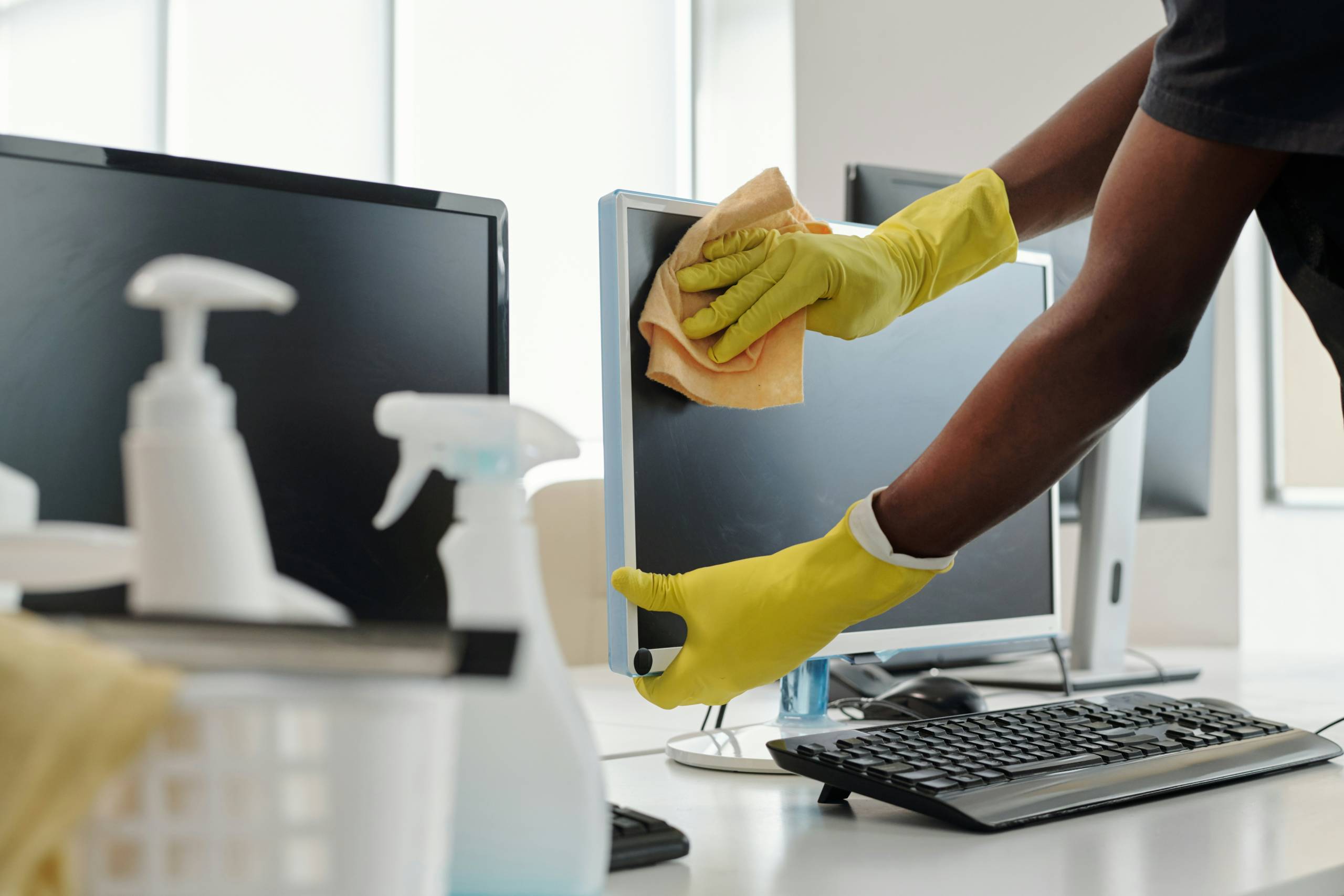The environmental impact of single-use plastic cleaning product bottles is substantial, contributing to pollution, resource depletion, and ecological harm. However, there are several eco-friendly alternatives that companies can adopt to reduce their environmental footprint while maintaining effective cleaning standards.
Organic and natural cleaning solutions are often preferred over conventional cleaners with common chemicals for several reasons, which encompass health, environmental, and social factors.
That being said, as the industry and public prizes environmental sustainability more and more, companies should take care to avoid greenwashing (the practice of making misleading or unsubstantiated claims about the environmental benefits of a product, service, or practice) because it can damage their reputation, lead to regulatory penalties, and undermine genuine sustainability efforts.
Looking for products certified by reputable third-party organizations such as Green Seal, EcoLogo, or OMRI can ensure that the products meet specific environmental standards.
Here’s a look at some other truly green alternatives and how companies can integrate them into their operations without incurring hefty costs.
Reusable Containers
Refillable containers can significantly reduce the volume of plastic waste generated by single-use bottles. These containers are designed for repeated use, and cleaning products can be purchased in bulk for refills.
They have numerous benefits as well – reducing waste by minimizing the number of single-use plastic bottles entering landfills. Durability is another benefit; reusable containers are often more robust and durable than single-use bottles.
Proper implementation is key. When setting up refill stations, install them in accessible areas where cleaning staff can easily refill their containers.
On-Site Generation of Cleaning Products
On-site generation of cleaning products has also started to become adopted more in recent years because of the accompanying environmental benefits and cost savings that it provides.
Onsite generation reduces the need for transportation of cleaning chemicals, thereby cutting down on greenhouse gas emissions associated with shipping. By producing chemicals onsite, the dependency on single-use plastic containers is also minimized, leading to less plastic waste and a reduction in the environmental burden of packaging materials.
Resource efficiency is a benefit here as well. Some onsite generation systems are designed to be water-efficient, using precise amounts needed for cleaning, which can lead to significant water savings. Modern onsite generation systems can be energy-efficient, utilizing optimized processes that require less energy compared to traditional manufacturing and transportation.
There are also substantial cost saving efficiencies. Onsite generation allows for producing chemicals as needed, reducing waste from expired or unused products. Simplified inventory with basic raw materials can streamline procurement and storage, leading to better inventory control and reduced storage costs.
Eco-Friendly Packaging Materials
Companies can opt for cleaning products packaged in eco-friendly materials such as biodegradable plastics, glass, or aluminum. These materials have a lower environmental impact compared to traditional plastics.
The benefits of these can be substantial. They greatly help reduce the environmental impact; biodegradable and recyclable materials break down more quickly and have less impact on landfills and oceans. They also reduce microplastics, which can be ingested unknowingly. Microplastics, resulting from the breakdown of larger plastic items, have been found in drinking water, seafood, and even air. The ingestion of microplastics by humans is a growing concern, as the long-term health effects are still not fully understood but could include inflammation, toxicity, and other health risks.
Electrolyzed Water Systems
Electrolyzed water systems use electricity, water, and salt to create a powerful, non-toxic cleaning and disinfecting solution on-site. This eliminates the need for traditional packaged cleaning products.
Electrolyzed water has become more and more adopted as companies begin to realize the key benefits. E-water is made with salt, water, and electricity, making it safe for humans and the environment, reducing health risks associated with chemical cleaners.
It’s also cost-effective: Once the system is installed, the ongoing costs are minimal compared to purchasing traditional cleaning products. Lastly, producing this on-site greatly reduces plastic waste by eliminating the need for plastic shipping containers and single-use bottles.
Integrating Eco-Friendly Alternatives: Practical Steps for Companies
It can seem daunting to implement these strategies, but by following a few simple steps, you’ll be amazed at how much progress you can make, quickly.
- Conduct an Audit: Assess current cleaning practices, product usage, and waste generation to identify areas for improvement.
- Set Sustainability Goals: Establish clear, measurable goals for reducing plastic waste and transitioning to eco-friendly alternatives.
- Engage Suppliers: Work with suppliers to source sustainable products and materials. Negotiate for bulk purchases and eco-friendly packaging options.
- Educate and Train: Provide training programs for cleaning staff on the benefits and proper use of eco-friendly alternatives. Ensure they understand the environmental impact and cost benefits.
- Monitor and Adjust: Regularly review the effectiveness of the new cleaning solutions and practices. Collect feedback from staff and make adjustments as needed.
- Promote a Green Culture: Encourage a culture of sustainability within the company. Highlight successes, share best practices, and involve all employees in sustainability initiatives.
Transitioning to eco-friendly cleaning alternatives doesn’t have to come with a hefty environmental or financial price tag. By adopting refillable containers, on-site generation, eco-friendly packaging, electrolyzed water systems, and natural cleaning solutions, companies can significantly reduce their plastic waste and environmental impact. Through careful planning, education, and collaboration with suppliers, commercial facilities can lead the charge in sustainable cleaning practices, benefiting both the environment and their bottom line.
Guest Author: Joshua Schwartz, President & Co-Founder of Viking Pure Solutions. Joshua Schwartz is the President and a Co-Founder of Viking Pure Solutions, a sustainable cleaning innovation company that is changing the way facilities clean and disinfect with non-toxic, on-demand solutions that are better for people and the environment. With a career spanning diverse industries such as medical real estate, healthcare, finance, and supportive housing, Joshua has made it his mission to identify societal needs and develop innovative solutions that are cost-effective and beneficial to those involved.
